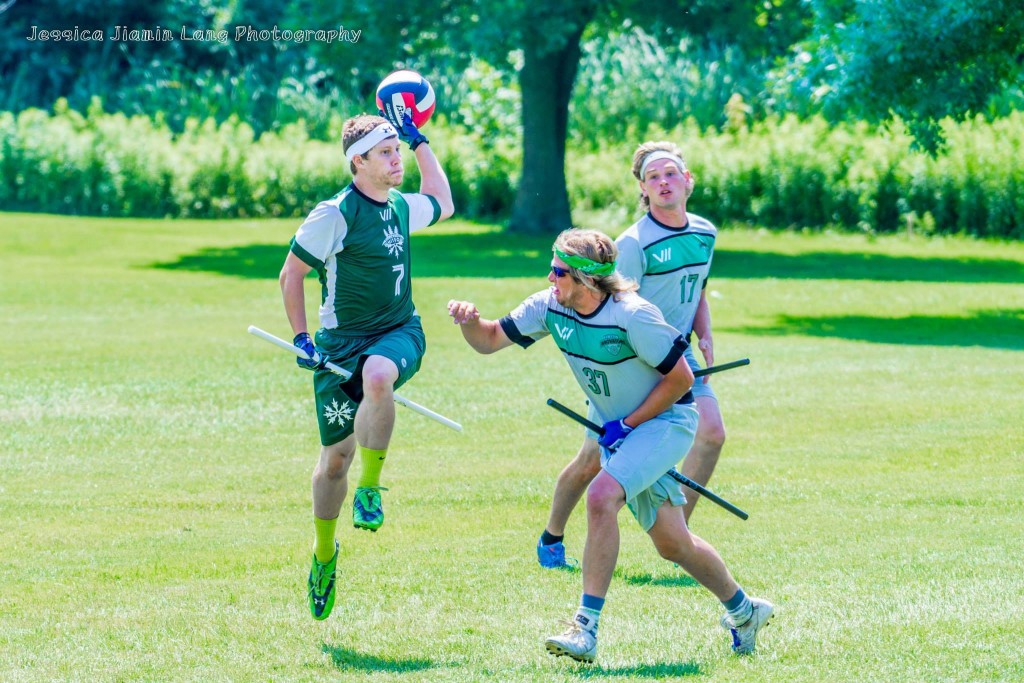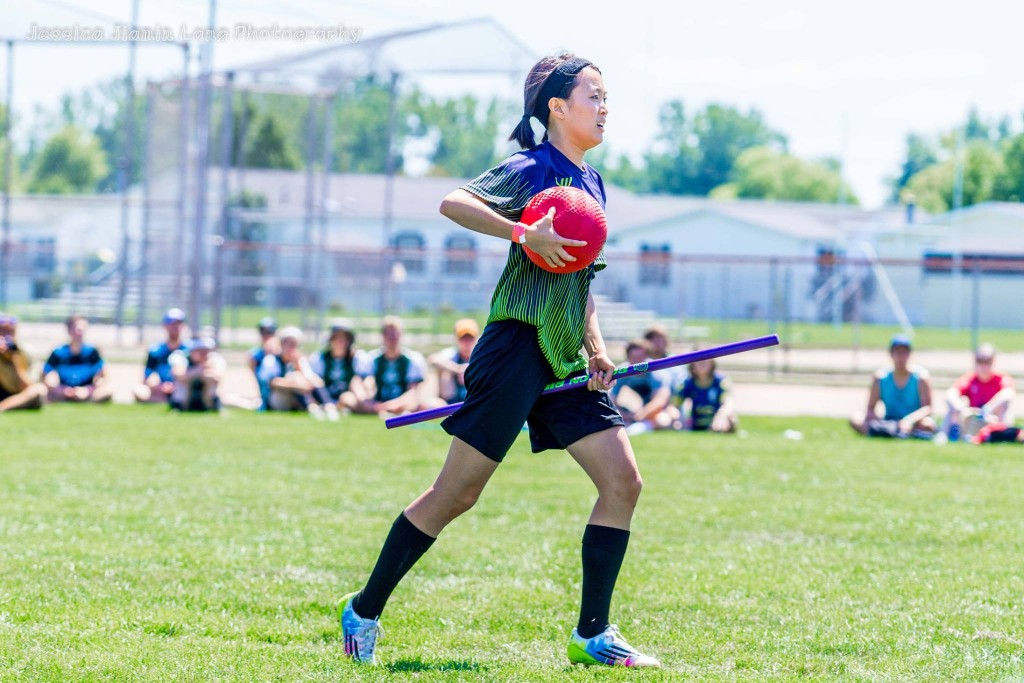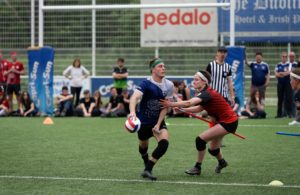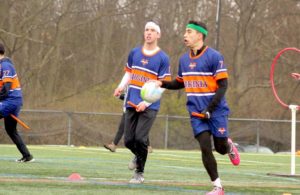- Rule, Britannia, no more?
- Unpopular Opinions: US Quadball Cup 2023
- Proven Contenders: University of Virginia
- Proven Contenders: Rutgers University
- Proven Contenders: University of Michigan
- Proven Contenders: Creighton University
- Different Perspectives: A Look Inside USA Ultimate
- Antwerp QC, Much of Belgian Core, Leaves Competitive Quidditch
How MLQ Benefits Carry Over to USQ for Three Northeast Community Teams
- By Devin Sandon
- Updated: September 17, 2015
Major League Quidditch was viewed by many as a large experiment, and one that we can now say was met with considerable success. MLQ ushered in the first summer of highly-competitive, regionally-focused quidditch. However, with the inaugural MLQ season behind us, it is time to turn our full attention to the coming USQ season.
That said, it may prove harder to set MLQ behind us than many would have anticipated. Particularly in the Northeast, the new season brings with it a remarkable consolidation of talent in Boston, New York City and Rochester, as the local community teams have acquired graduating talent and come to closely resemble the teams that represented them in MLQ.
The easiest example here is Rochester United, a new community team formed from the core of the Rochester Whiteout MLQ team. A recent roster announcement revealed that more than half of United’s players were on Whiteout this summer.
Perhaps the greatest absence that will be felt for United from Whiteout will be in its female beater depth chart, where it loses Anna Parker and Lisle Coleman; however, due to their travels, this will not feel unfamiliar (the two beaters were only able to attend one set of the Whiteout’s MLQ games prior to the championship). The team will certainly miss some of its other players from this summer, such as keeper Basem Ashkar and beater Alexander Venuti, but, by and large, the top of Rochester’s depth chart will remain fairly similar, with Shane Hurlbert, Jon Jackson, Solomon Gominiak, Sara Smacher, Alyssa Giarosso and Patrick Callanan, among others, returning.
Perhaps the biggest beneficiary of the MLQ season is QC Boston: the Massacre, which has made some substantial upgrades in the off season, adding Harry Greenhouse, Tyler Trudeau, Lulu Xu and Julia Baer, at the least, with several other Night Riders set to potentially make the jump. While Greenhouse’s name will jump off the page for many, and for good reason, one cannot overlook the value that the other players will bring to the team. Each of these four players addresses a fundamental difficulty that Massacre’s roster faced last year.
The greatest flaw in Massacre’s roster last season was the lack of a strong seeker capable of making clutch grabs to end games. Throughout the fall, Massacre won only a single snitch-range match, and that outcome is itself deceptive, as the team enjoyed an 80-point lead when the snitch returned to pitch before committing so heavily to attempting to catch the snitch that they allowed RIT to climb back into range. Greenhouse will give Massacre the ability to make catches when it needs them, as well as allowing it to avoid its past tunnel vision on the snitch.
The second largest difficulty that Massacre faced was its offense was, particularly when under pressure, very one dimensional. The majority of goals came in one of two ways: Max Havlin and the beaters aggressively moved up the field and cleared out the defense so that Jayke Archibald could drive in and stuff the ball through the hoops or Archibald would pass the ball to his male off-ball chaser who would immediately dunk the ball or shoot. Given their frequent double-male beater set, Massacre lacked the dynamic female chasers and secondary ball handlers necessary to run a strong passing offense, forcing them into a one-pass or drive offense.
Trudeau, Greenhouse and Baer will all have tremendous impacts on Massacre’s passing game, and will all bring new strategies, styles and perspectives to the offense. I expect Massacre may be showcasing an offense which has elements of both University of Maryland’s beautiful, forward-looking passing offense, and Emerson College’s more deliberate and precise half-court offense. Baer, beyond demonstrating her dynamic skill set in the MLQ, will also hopefully serve to increase her teammate’s willingness to target their female chasers with passes to further open up the offensive half for Massacre.
Xu gives Massacre a veteran beater who can back up Boston’s aggressive beating tendencies, while allowing the team to break out of its traditional double-male beater set. The fact that she is a former teammate and partner of Havlin and will consequently have pre-existing synergy is merely frosting on the cake.
To say that expectations should be high for Massacre would be a bit of an understatement. With a disappointing exit from World Cup 8 in the first round of the bracket, you can fully expect Massacre to come back this year with a more talented, driven and strategically-diverse roster.
Of the three teams, The Warriors added the least talent from its MLQ team, adding just two players in Colleen O’Mara and Theresa Butcha. That said, the team is also acquiring considerable talent from the outside in Alex Leitch, Brennen Lutz and Pablo Santiago-Calderon. Even without the infusion of talent though, The Warriors gained a lot from the MLQ season in terms of high-level game experience in the off-season. This, of course, brings us to one of the biggest and most overlooked impacts of the MLQ season.
The three community teams benefit substantially from having a core of players who have practiced and played together consistently throughout the summer. These teams can enter the season confident that their players are in shape and in practice and that they have synergy ready out of the gates. While college teams will spend the months leading up to the Northeast Regional Championship honing their new recruits and trying to rebuild their systems, the Night Riders, Titans and Whiteout, or should I say Massacre, Warriors, and United, will be honing and perfecting their games.
Related Posts
About Devin Sandon
Devin is the creator of Quidditch Scores and @IQAscores, and all around a less omniscient and omnipresent version of Martin Pyne. Currently entering his fifth season with the University of Rochester, Devin is a two-time Team USA alternate. He has also served on the IQA Rules Team and Snitch Development Team.





